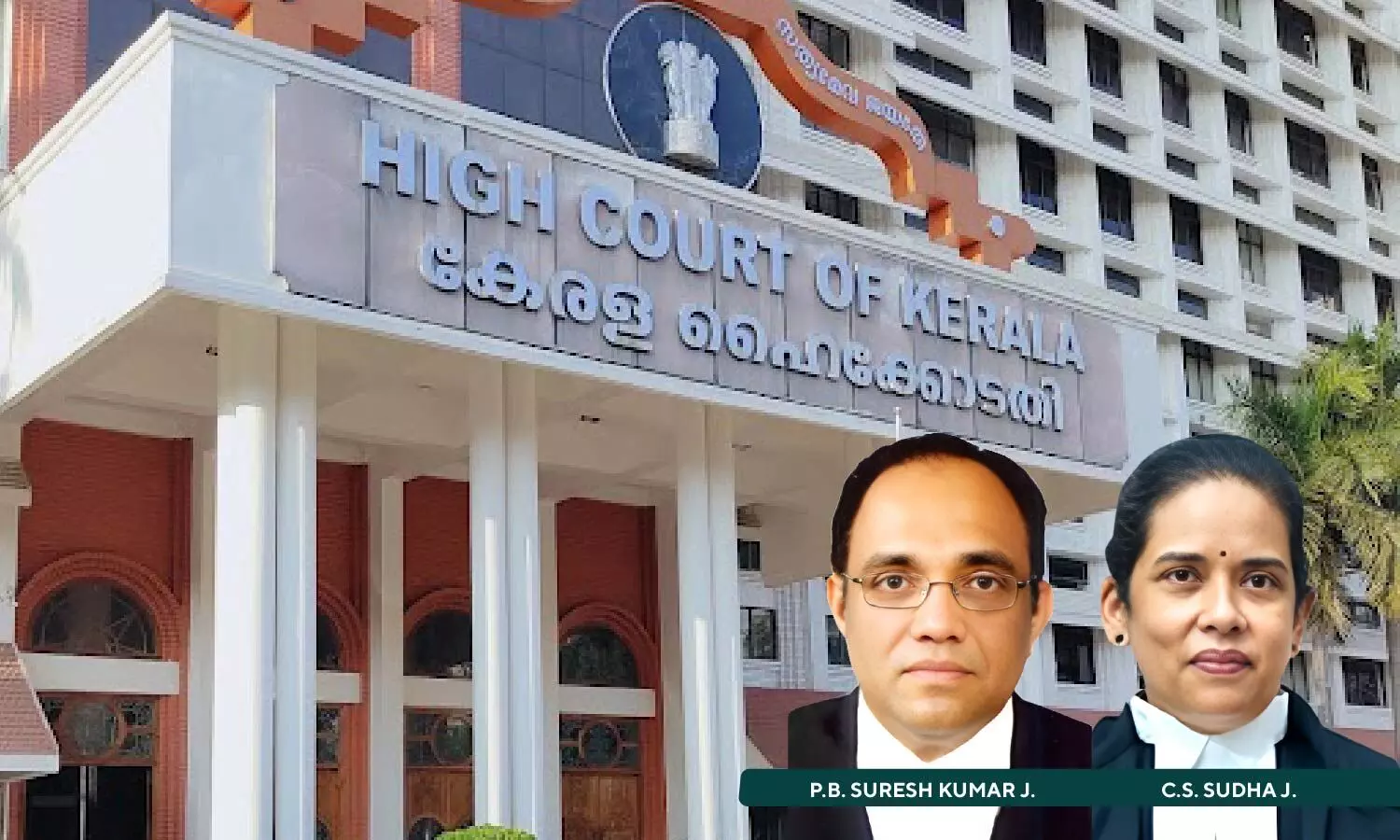
Section 334 CrPC| Accused Committed Offence Without Knowing Its Nature While He Was Of Unsound Mind: Kerala HC Sets Aside Section 299 IPC Conviction
 |
|Acknowledging that the appellant has committed the act of hacking his son to death with a coconut scraper/grater and chopper, the Kerala High Court acquitted the appellant under Section 334 CrPC on the ground that, at the time at which he committed the offence, the appellant was, by reason of unsoundness of mind, incapable of knowing the nature of the act alleged, or that it was contrary to law.
Guided by legal precedent in Dahyabhai Chhaganbhai Thakkar v. State of Gujarat [AIR 1964 SC 1563], the High Court emphasized that the prosecution in a homicide case must prove the accused's intent beyond a reasonable doubt.
Therefore, referring to the decision in Dahyabhai Chhaganbhai Thakkar, the Division Bench of Justice P.B. Suresh Kumar and Justice C.S. Sudha observed that “The evidence placed by the accused may not be sufficient to discharge the burden under S.105 of the Evidence Act, but it may raise a doubt in the mind of a judge as regards one or other of the necessary ingredients of the offence. If it raises a reasonable doubt in the mind of the judge whether the accused had the requisite intention laid down in Section 299 IPC, the court must acquit the accused, for in that event the prosecution will have failed to prove conclusively the guilt of the accused”.
The Bench, therefore, elucidated that evidence on record clearly shows that the accused had committed the ghastly act of hacking his minor child to death.
“We do understand the anguish, deep sorrow and frustration expressed by PW2, the mother of the deceased, who had the misfortune to see the beheaded torso of her young son. But, when the law on the point gives a protection to the accused, we cannot deny the same to the accused”, added the Bench.
Hence, the Bench found that the accused is liable to be acquitted under 334 CrPC as he is entitled to the benefit of exception contained in Section 84 IPC.
Advocate Rajesh K Raju appeared for the Petitioner, whereas Advocate Ambika Devi S appeared for the Respondent.
The brief facts of the case were that the appeal under Section 374(2) CrPC challenged the conviction and sentence of the accused for the offence under Section 302 IPC. The prosecution alleged that due to enmity, the accused murdered his 8-year-old son using a chopper and a coconut scraper. The investigation and submission of the charge sheet were carried out, leading to the case being taken up by the Sessions Court. After trial, the court found the accused guilty of murder and sentenced him to life imprisonment with a fine.
After considering the submission, the Bench found that the defence strongly asserts that the accused is entitled to the benefits outlined in Section 84 IPC in the absence of an established motive for the alleged crime, combined with the accused's lack of attempts to flee the scene.
Finding the accused's documented mental health issues, substantiated by the testimony of doctors and medical records, which led to his treatment at the Mental Health Centre, Thiruvananthapuram, the Bench stated that in cases involving homicide, the prosecution bears the onus of establishing, beyond reasonable doubt, and that the accused was responsible for causing the death with the specific intention delineated in Section 299 of the Indian Penal Code.
The Bench further found this foundational burden being of a general nature, remains unaltered and unequivocally rests upon the prosecution throughout the proceedings, while the evidence presented by the accused might not suffice to fully discharge the burden as stipulated by Section 105 of the Indian Evidence Act, it can potentially raise a question in the judicial mind regarding the presence of any of the essential constituents of the offence.
“Should such evidence generate a reasonable doubt within the judicial realm concerning whether the accused indeed possessed the requisite intent as enshrined in Section 299 IPC, the course of action necessitates the acquittal of the accused. In such instances, it is incumbent upon the court to exonerate the accused based on reasonable doubt pertaining to the intended mental state, as contemplated by Section 299 IPC”, added the Bench.
The High Court explained that if the accused can bring his case within the ambit of any of the general exceptions by the standard of preponderance of probabilities, as a result of which he may succeed not because he proves his case to the hilt but because the version given by him casts doubt on the prosecution case.
“Here, doubts do arise in our mind as to whether the accused had the required mens rea to commit the offence. In such circumstances, it can only be held that the accused is entitled to the benefit of doubt”, added the Court.
At the same time, the High Court also acknowledged the fact that the accused is a threat to the life and property of the people of the locality and hence the reason why on the request of the police, the jurisdictional magistrate had invoked the provisions of the Mental Healthcare Act, 2017.
Accordingly, the High Court directed that the appellant be kept in safe custody as provided under Section 335 CrPC and held that the appellant shall be detained in one of the mental health establishments in the State in accordance with the rules, if any, framed by the State Government.
Cause Title: Reji Thomas @ Vayalar v. State of Kerala and Anr.
Click here to read/download the Judgment